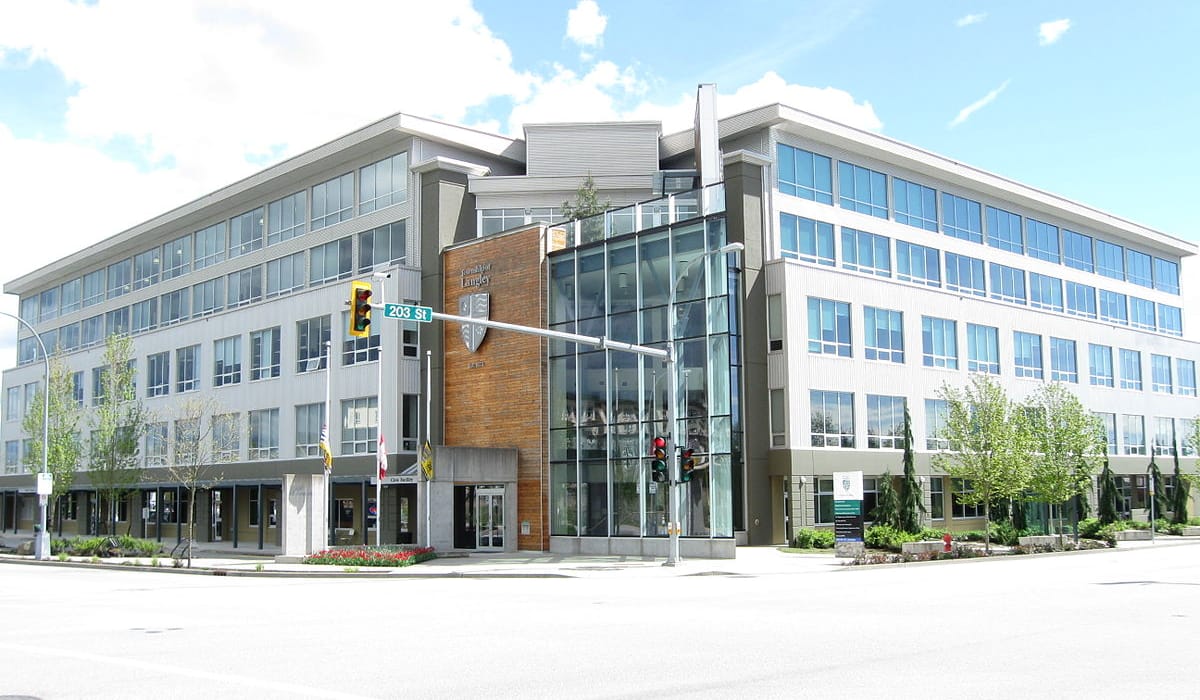Table of Contents
Langley Township will need to spend between $400,000 and $500,000 on a byelection this fall after a new provincial law forced a councillor from her seat. The expensive vote will fill the position for only about one year before the next regular municipal election.
The situation has sparked debate about democracy, representation, and responsible spending of tax dollars in Langley Township.
For Langley Township residents already dealing with increased property taxes and the rising cost of living, this unexpected expense raises important questions about how their local councillors balance fiscal responsibility with democratic principles.
The byelection will likely happen this fall, giving voters a chance to have their say on who should fill the vacant seat.
New Provincial Law Creates Vacancy
The need for a byelection came after the B.C. legislature passed the Eligibility to Hold Public Office Act on May 29
This new law prevents politicians from holding both provincial and municipal elected positions at the same time. It was designed to prevent conflicts of interest and attendance problems that arose when politicians attempted to serve in multiple elected roles simultaneously.
Councillor Misty Van Popta, who was elected as a Conservative MLA for Langley-Walnut Grove last fall, had been serving in both roles. She planned to continue as both MLA and councillor until the next municipal election in October 2026, when she said she wouldn't run locally again.
However, her dual responsibilities quickly created practical problems, as Van Popta arrived an hour late to four council meetings due to conflicts with legislative duties on February 24, March 10, April 7, and May 12, and missed the May 26 meeting entirely.
These attendance issues highlighted the extreme difficulty of effectively serving constituents in both roles simultaneously.
Before this law, there was nothing stopping politicians from holding both positions. But the NDP majority government decided to change the rules, forcing Van Popta and others in similar situations across B.C. to choose between their roles.
Her removal leaves Langley Township with eight council members instead of the usual nine, including Mayor Eric Woodward.
The township isn't alone in this situation – nearby Abbotsford faces a similar $300,000 byelection after school trustee and MLA Korky Neufeld was also forced from his position.
Legal Requirements for By-Elections
Under provincial legislation, municipalities have clear obligations when council vacancies occur.
The BC Community Charter states in Section 81(2) that "by-elections for office on municipal council must be held as required under section 54 [by-elections] of the Local Government Act."
The legislation makes by-elections mandatory, not discretionary.
The Local Government Act's Part 3 governs all municipal elections and by-elections, establishing standardized procedures that municipalities must follow. These laws ensure democratic representation is maintained when council seats become vacant mid-term.
However, the province also has significant intervention powers when municipalities fail to fulfill their electoral obligations. Under Section 129(3) of both the Community Charter and Local Government Act, if council composition is compromised, the Minister of Municipal Affairs can either order that remaining members constitute a quorum or directly appoint qualified persons to fill vacancies until elections are held.
Council Debates the Costs
At a June 9 council meeting, the main concern was the hefty price tag. Township staff estimate the byelection will cost between $400,000 and $500,000 – money that could otherwise go toward community services, road repairs, or keeping property taxes down.
Mayor Woodward openly questioned whether the council had to hold the byelection at all. "What happens if council declines to appoint an election officer?" he asked during the meeting. Without appointing someone to run the election, the 80-day countdown to voting day wouldn't start.
Several councillors shared concerns about spending so much money. Councillor Margaret Kunst wondered if the province would force them to hold the election anyway. "Would the provincial government not then mandate that?" she asked.
Chief Administrative Officer Chan Kooner explained that the law wasn't entirely clear on this point. He noted there were "broad statutory powers the province has to potentially mandate" a byelection, but couldn't say for certain what would happen.
Councillor Kim Richter worried about potential penalties if they refused to hold the vote. "If we do that, what's the penalty on council from the province?" she asked.
Video of the exchange from the June 9, 2025 Township council meeting
Provincial Powers and Municipal Obligations
The legislative framework gives the province substantial authority to ensure electoral processes are followed.
While municipalities typically manage their own elections through appointed chief election officers, provincial law requires that these elections happen according to prescribed timelines and procedures.
Critically, the Minister of Municipal Affairs has broad powers to intervene when municipal governance is compromised.
This includes the authority to appoint interim council members or modify quorum requirements to ensure continued municipal operations.
Looking for Alternatives
Mayor Woodward pointed to Coquitlam as an example of a city that successfully avoided a byelection in 2021. When faced with a similar situation, Coquitlam's council simply didn't appoint an election officer. The province didn't force them to hold a vote, and they even won a court case when residents tried to sue for a byelection.
"Under the legislation there are no penalties if a local government chooses not to schedule a byelection," a provincial official told Coquitlam media at the time.
However, when asked by the Langley Advance Times, the Ministry of Housing and Municipal Affairs said the minister could order a byelection or arrange one directly. "The costs of the byelection would be borne by the local government," the ministry stated. They added that this power has "rarely been used" and that they prefer to work with communities to find suitable timelines.
The province noted that at least four B.C. communities are currently holding byelections, with two more planned for this fall.
Democracy Versus Dollars
The debate puts Langley Township council in a difficult position. On one hand, democratic representation matters. Having a full council ensures all neighborhoods and viewpoints are represented when making decisions that affect residents' daily lives.
The legislative framework supports this principle. The Community Charter's election requirements exist to maintain democratic accountability and ensure voters have consistent representation throughout municipal terms. Operating with vacant seats can limit council's ability to effectively govern and represent community interests.
On the other hand, spending half a million dollars for someone to serve just seven to eight months seems like a lot of money. That's enough to fix several roads, fund community programs, or help ease the tax burden on working families.
Mayor Woodward suggested the province could have made the new law take effect on January 1, 2026. Under election rules, if a councillor resigns after January 1 in an election year, no byelection is required. This would have saved taxpayers hundreds of thousands of dollars.
"I cannot speak for Council in terms of the collective body overall," Woodward told the Langley Advance Times when asked how council is weighing these competing concerns. "Every Member of Council has their own process to confirm their position."
What Happens Next
Despite the concerns and debate, it appears a byelection will go ahead. "It's clear that a byelection is required," Mayor Woodward acknowledged, citing the Local Government Act.
Council will likely appoint a chief election officer at a meeting in June or July, before the August break. Once appointed, the officer has 80 days to organize and hold the election, putting the vote sometime this fall.
The new councillor will serve for approximately one year before the next regular municipal election in October 2026. Township staff are currently working on recommendations for who should serve as chief election officer.
Mayor Woodward said his Contract With Langley political slate might run a candidate, though he expressed caution about the selection process. "We have also made grave mistakes in supporting a few people in the last election that, looking back, clearly used us to get elected," he said. "The vetting process is so very important and takes time."
Provincial-Municipal Tensions
This situation highlights ongoing tensions between different levels of government and raises questions about municipal autonomy versus provincial oversight.
While the Community Charter grants municipalities broad powers to govern local affairs, it also establishes clear boundaries and provincial oversight mechanisms.
The legislative framework reflects a balance between local self-governance and provincial standards for democratic processes. When municipalities resist mandatory electoral requirements, they risk triggering intervention powers that could result in appointed rather than elected representation.
For Langley Township, the choice appears to be between organizing their own byelection according to their preferred timeline or potentially facing provincial intervention that could impose both the election and additional oversight.
Looking Ahead
This situation highlights the practical challenges that arose when an elected official attempted to serve in multiple roles simultaneously.
Van Popta's dual responsibilities created real conflicts that affected her ability to fulfill her municipal duties.
The MLA arrived an hour late to four different council meetings due to conflicts with Question Period in the legislature and completely missed the May 26 council meeting altogether.
The provincial government's decision to pass the Eligibility to Hold Public Office Act came after politicians across B.C. had been accumulating positions at different levels of government, creating not only potential conflicts of interest but also demonstrated attendance problems that compromised effective governance.
Van Popta's decision to run for MLA while already serving as a municipal councillor created the circumstances that now require taxpayers to fund an expensive byelection.
Her consistent tardiness and absences from council meetings showed the practical impossibility of serving both roles effectively.
Had she chosen to resign from council before seeking provincial office, or decided against running for MLA while serving municipally, Langley Township would not be facing this half-million-dollar expense or the governance challenges of having an frequently absent councillor.
Mayor Woodward described the relationship with the province as "balanced," with "some great projects and partnerships underway" but also "challenges with specific Ministries that do not yet seem as responsive to serious issues within the Township of Langley."
The byelection debate serves as a reminder of how individual political choices can have expensive consequences for local communities.
While different levels of government must work together, the costs of political overextension ultimately fall to taxpayers who deserve representatives who can fully commit to their roles.
For Langley Township residents, the fall byelection will offer a chance to have their say on who should fill the vacant seat.
It will also serve as a lesson about the importance of elected officials making realistic commitments to the roles they seek and the communities they serve.
References and Further Reading

Links to Council minutes for meetings where former-Councillor Van Popta was either late, or completely absent:
What did you think of this story?
Take our quick 2-minute survey to let us know how we're doing and what topics you'd like to see The Langley Union cover next.





